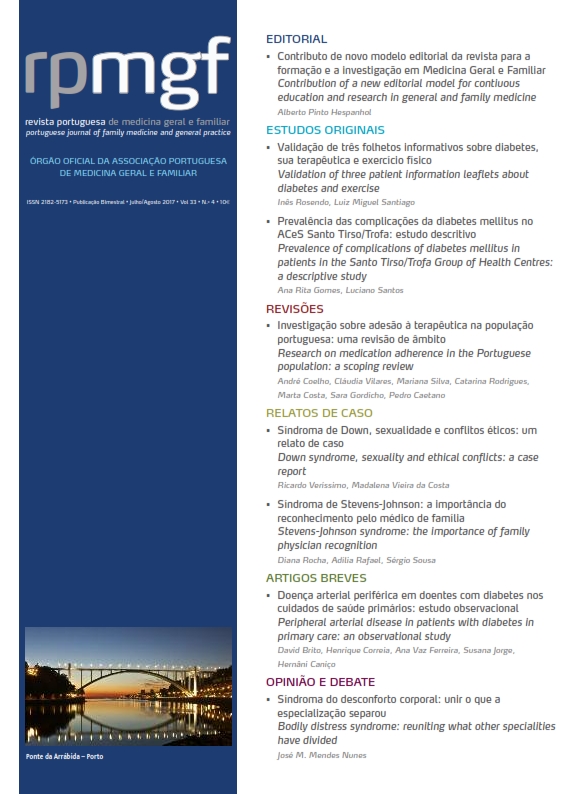Bodily distress syndrome: reuniting what other specialities have divided
DOI:
https://doi.org/10.32385/rpmgf.v33i4.12230Keywords:
Functional somatic syndromes, Somatoform disorders, Bodily distress syndromeAbstract
The author defends the concept of the bodily distress syndrome (BDS) as a unifying entity of somatic syndromes and somatoform symptoms. These patients have physiological, cognitive, and behavioural characteristics that require a comprehensive approach. We require the integration of a number of pseudo-diagnoses that are side effects of medical specialization. Patients most in need of a holistic view are paradoxically disintegrated by the approach of many medical specialties. They simply add diagnostic labels that reduce the patient’s perception of health. The concept of BDS accepts the complexity of these symptoms. It rejects the mind-body duality and the negative definition of the condition as the absence of a medical explanation. Because this approach depends on the doctor-patient relationship and continuity of care, the family physician is primarily responsible for addressing the needs of these patients, with rational use of referral to other specialties.Downloads
Downloads
Published
Issue
Section
License
The authors will assign to the RPMGF the sole right to publish and distribute the content of the manuscript specified in this declaration via physical, electronic, broadcasting or any other medium that may come into existence. They also grant the RPMGF the right to use and exploit this manuscript, in particular by assigning, selling or licensing its content. This permission is permanent and takes effect from the moment the manuscript is submitted, has the maximum duration allowed by applicable Portuguese or international law and is of worldwide scope. The authors further declare that this assignment is made free of charge. If the RPMGF informs the authors that it is not going to publish their manuscript, the exclusive assignment of rights ceases forthwith.
The authors authorise the RPMGF (or any entity it may appoint) to act on their behalf when it believes that copyright may have been infringed.





